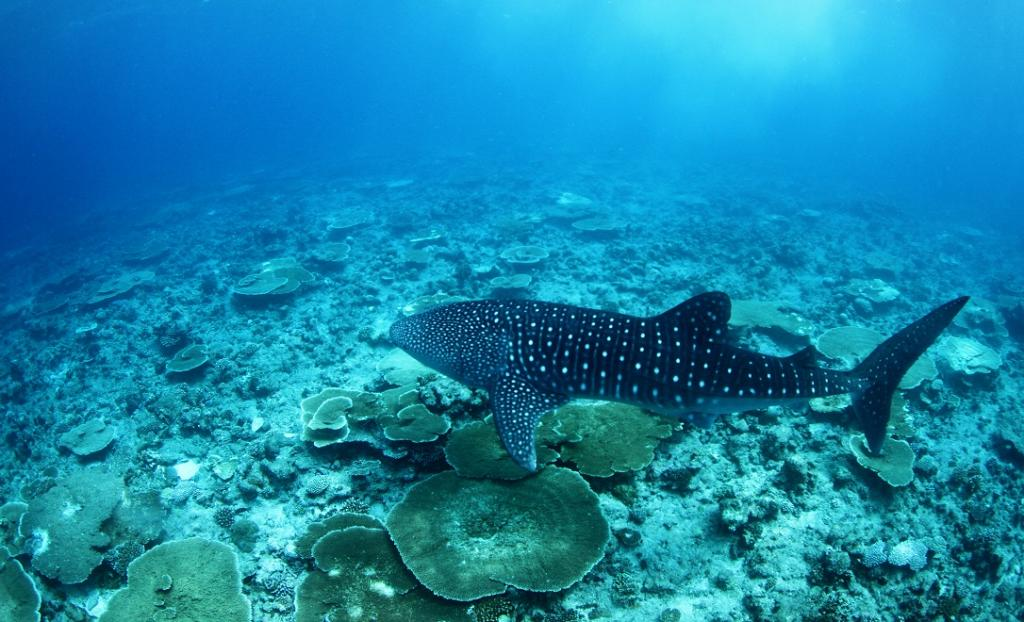International Whale Shark Day | 01 Sep 2022
Why in News?
Recently, Delhi-based non-profit, Wildlife Trust of India (WTI) launched ‘Save the Whale Shark Campaign’ along Karnataka, Kerala and Lakshadweep in Mangaluru.
- August 30, 2022 is International Whale Shark Day, this year’s theme is “The Future of Sharks: Guardians of Our Seas.”
What is the Save the Whale Campaign?
- The campaign will run along coastal Karnataka, Kerala and the Lakshadweep islands in collaboration with the Forest and Fisheries Departments of Karnataka, Kerala and the Lakshadweep administration.
- Further, the campaign aims to reduce accidental entanglements in fishing nets with fishermen releasing whale shark.
- A mobile application has been developed to record whale shark spotting and rescues for further conservation action
What are the Key Points related to Whale Shark?
- About:
- The whale shark (Rhincodon typus) is the largest fish on Earth and a keystone species in marine ecosystems.
- It can grow to a length of approximately 18 metres and weigh as much as 21 tonnes.
- They are ovoviviparous – meaning they give birth to live young rather than lay eggs – and can reach sexual maturity at around 10 years old.
- The whale shark (Rhincodon typus) is the largest fish on Earth and a keystone species in marine ecosystems.
- Habitat:
- Whale sharks are tropical ocean dwellers that feed on fish, squid and other small creatures.
- India:
- The whale shark is distributed all along the Indian coast.
- However, the largest whale shark aggregation is along the Gujarat coast.
- Beyond Gujrat:
- WTI, with the support of IUCN had conducted a survey along the west coast (excluding Gujarat) during 2012-13 and found that the highest number of Whale Shark sightings (after Gujarat coast) were near the waters of Lakshadweep.
- Also, the Whale shark landings and stranding are largely reported from Kerala.
- WTI, with the support of IUCN had conducted a survey along the west coast (excluding Gujarat) during 2012-13 and found that the highest number of Whale Shark sightings (after Gujarat coast) were near the waters of Lakshadweep.
- Status:
- The Wild Life (Protection) Act, 1972: Schedule I
- International Union for Conservation of Nature (IUCN) Red List: Endangered.
- IUCN Green Status Assessment: Largely Depleted.
- Threat:
- Accidental entanglement:
- The main threat to these plankton feeders is accidental entanglement in fishing nets.
- Most fishers know that their nets can entrap a whale shark.
- Despite that they trawl the ocean floor to intend to catch grouper, mackerel, shrimp and lobster.
- There is always a possibility that they accidentally catch a whale shark too.
- Rising Plastic Level:
- The rising level of plastic debris in oceans is a large-scale environmental problem with widespread impact.
- Owing to their feeding strategies, this filter-feeding megafauna is particularly susceptible.
- The rising level of plastic debris in oceans is a large-scale environmental problem with widespread impact.
- Accidental entanglement:
- Protection:
- To curb such mortality is to ensure the release of the entangled whale sharks from the fishing net without any delay.
- For this, the primary target group, which is the fishers needs to be sensitised.
- To curb such mortality is to ensure the release of the entangled whale sharks from the fishing net without any delay.
- Initiatives:
- WTI has been running a project in Gujarat for the last 20 years which has resulted in fisher folk releasing 852 whale sharks in the Arabian Sea.
- Goal:
- The main goal of this project is to reduce and eradicate whale shark death in the incidental catch in fishing nets by the voluntary release of the whale shark.
- This initiative targets the marine fishers along these two states and the island of Lakshadweep.
What is IUCN Green Status Assessment?
- The IUCN Green Status classifies species into nine Species Recovery Categories, indicating the extent to which species are depleted or recovered compared to their historical population levels.
- Each Green Status assessment measures the impact of past conservation on a species, a species’ dependence on continuing support, how much a species stands to gain from conservation action within the next ten years, and the potential for it to recover over the next century.
UPSC Civil Services Examination Previous Year Question (PYQ)
Prelims
Q. Among the following, which one lays eggs and does not produce young ones directly? (2008)
(a) Echidna
(b) Kangaroo
(c) Porcupine
(d) Whale
Ans: (a)
Exp:
- Echidnas, sometimes known as spiny anteaters, belong to the family Tachyglossidae in the monotreme order of egg-laying mammals.
- The four extant species of Echidnas and the platypus are the only living mammals that lay eggs and the only surviving members of the order Monotremata.
- Echidnas evolved between 20 and 50 million years ago, descending from a platypus-like monotreme, which was aquatic, but echidnas adapted to life on land. Therefore, option (a) is the correct answer


